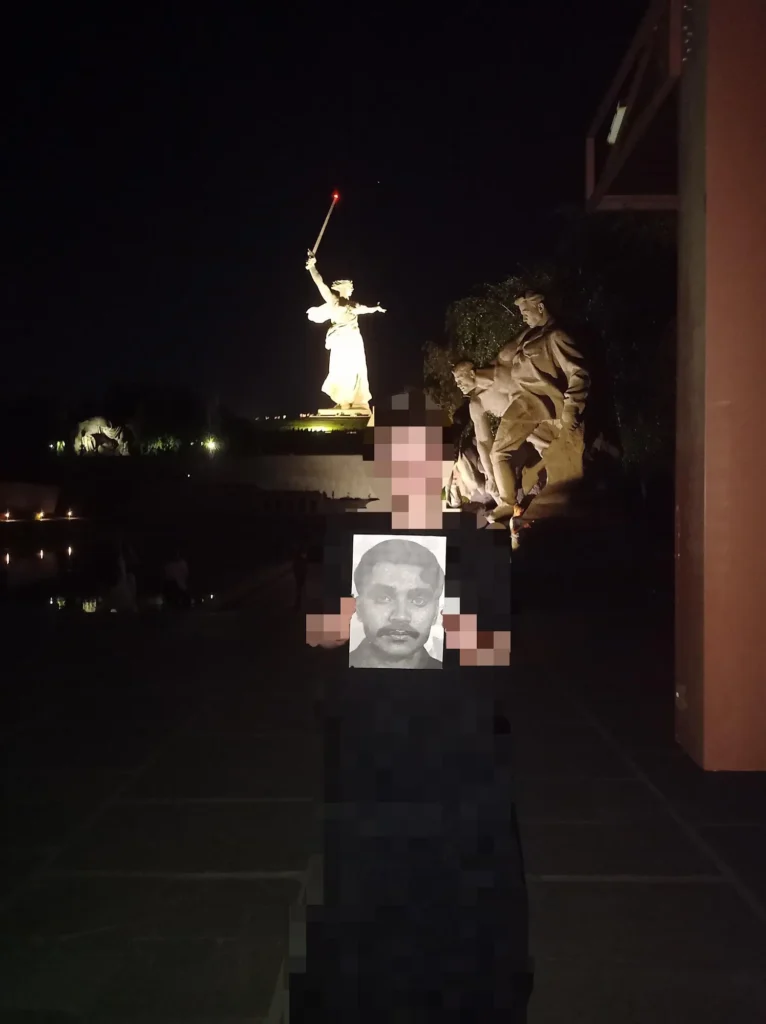
Maoist Activity in Russia
Featured image: activists commemorated Comrade Basavaraj in Volgograd.
We hereby share some information on actions carried out by Maoist activists in Russia. We received this information previously, but we report now due to some technical problems.
An action was held in support of the People’s War in India and to show solidarity with the Communist Party of India (Maoist), which lost Comrade Basavaraj, its General Secretary. Basavaraj’s portrait was brought to the monument “The Motherland Calls” in Volgograd, formerly called Stalingrad. The Maoists state that “We are confident that Basavaraj and other warriors of the people’s wars going on today have a place in the same ranks with the heroes of Stalingrad, who bravely defeated the fascists in 1942-1943. (…) Maoists mourn Comrade Basavaraj together with Indian comrades. We send them our international solidarity and support. We express confidence that the loss of Indian comrades will make them even stronger, since the life and example of Comrade Basavaraj will further inspire the Indian Maoists, militants of the CPI (Maoist), heroic fighters of the PLGA and participants in the united front organizations to selfless struggle.”


Moreover the activists also launched various campaigns in several cities. In Chelyabinsk and Yekaterinburg activists spread leaflets and hung banners against domestic violence. The Maoist view of the problem and its solutions were spread through social media and the work among the women was promoted in order to organize protests, pickets, etc., in several cities., such as Chelyabinsk, Yekaterinburg, Volgograd, Moscow, St.Petersburg, among others.
A campaign against repression started also some months ago, against new bans, censorship restrictions and new laws that the Russian State launched. As a part of the campaign, a banner was hung in Chelyabinsk against the ban on searching for and reading prohibited information. There were also numerous publications in social media accounts criticizing the repressive and censorship policies of the Russian authorities.



